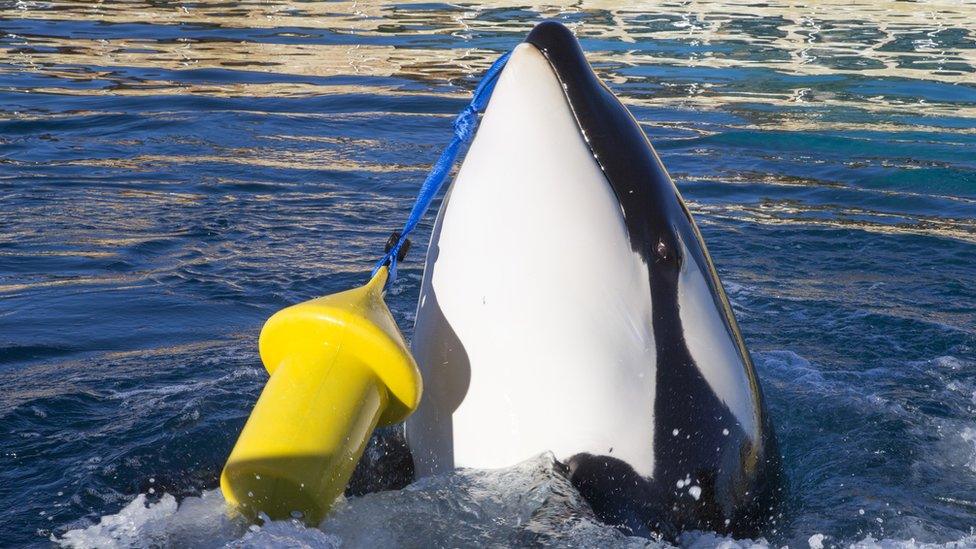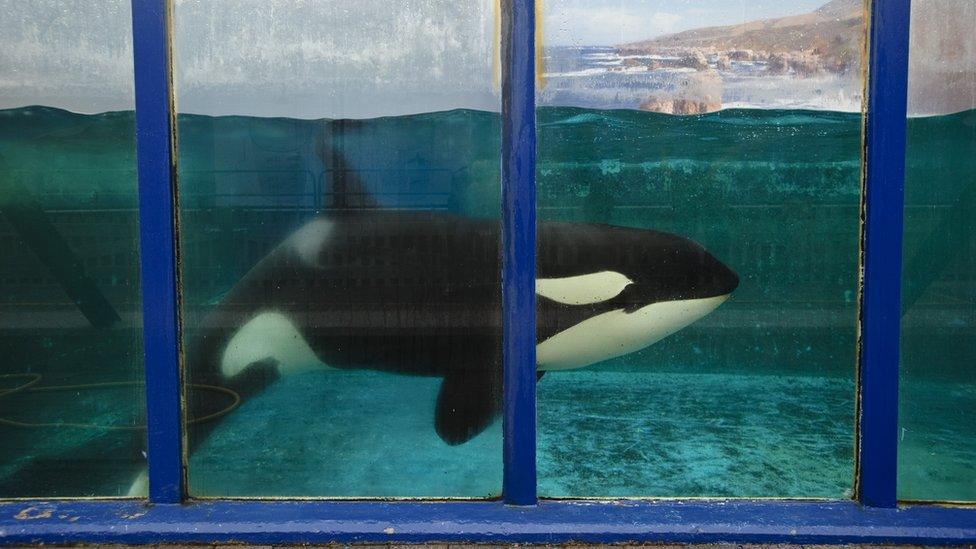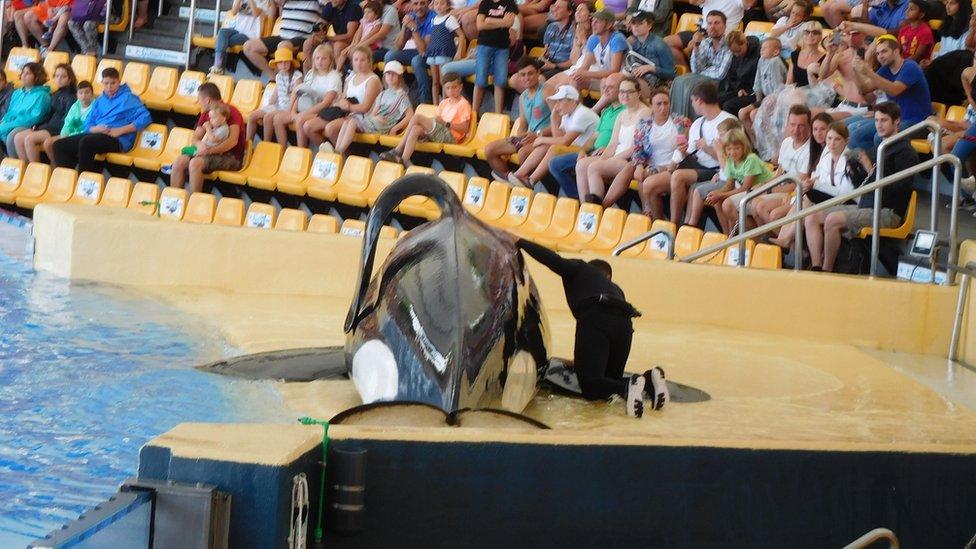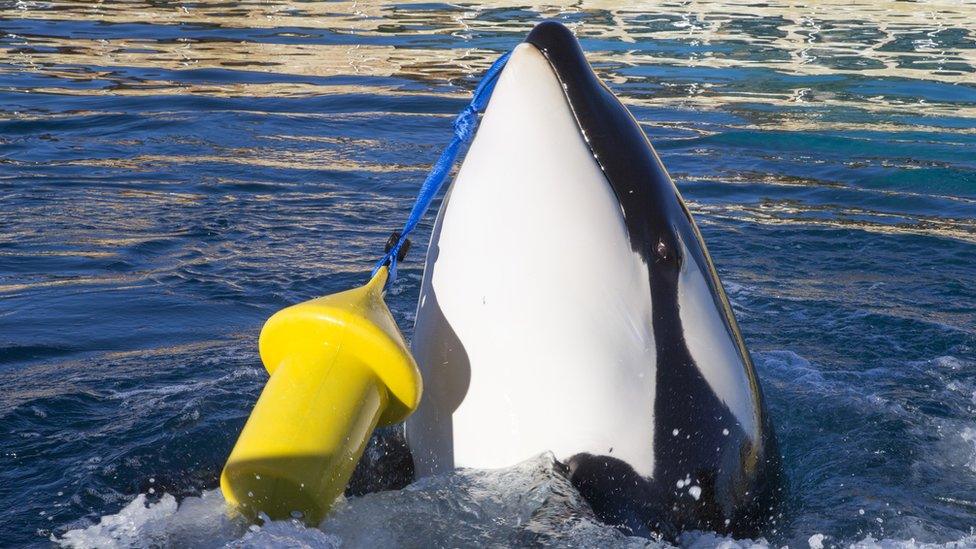Killer whale could be saying 'set me free'
- Published
Killer whale says "hello"
The killer whale which was recorded mimicking human speech could be saying "set me free", says an animal campaign group.
Scientists have recorded an orca named Wikie mimicking a trainer to say "hello", count and blow raspberries.
Critics say it only proves what is already known about whales' intellect and doesn't promote conservation.
The charity Born Free's president Will Travers said: "The natural place for a whale or dolphin is in the wild."

Wikie is a 16-year-old female whale
"I can't quite imagine why this is in the headlines as there are lots of different animals - lots of different species - that can mimic humans," he added.
"They could actually be saying 'set me free' for all we know."
Researchers had set out to discover whether orcas could learn new vocalisations by imitating others.
Dr Josep Call, a University of St Andrews co-researcher on the study, said the findings showed whales were among a small group of animals able to mimic human speech.
He said it showed basic "conversations" with Wikie could one day be possible.

A captive killer whale in the Netherlands
Scientist Dr Peter Evans, from Sea Watch Foundation - which works to improve whale conservation - said the study was an example of "anthropomorphism"- a human desire to see our own traits mirrored in animals.
"We're not really learning much more by doing these studies in captivity.
"What would be great is if we learned more about how they communicate in the wild together."
The study has also brought attention to the life of whales in captivity.
Allow X content?
This article contains content provided by X. We ask for your permission before anything is loaded, as they may be using cookies and other technologies. You may want to read X’s cookie policy, external and privacy policy, external before accepting. To view this content choose ‘accept and continue’.

Allow X content?
This article contains content provided by X. We ask for your permission before anything is loaded, as they may be using cookies and other technologies. You may want to read X’s cookie policy, external and privacy policy, external before accepting. To view this content choose ‘accept and continue’.

Wikie lives at the Marineland Aquarium in Antibes, France.
The country last year banned breeding or keeping dolphins and killer whales in captivity, except for orcas and bottlenose dolphins already held.
Born Free's Will Travers said the study was the result of an "unnaturally close proximity" that only served human entertainment.
Orcas kept in captivity were known to suffer from physical and psychological issues, including developing the hallmark collapsed dorsal fin, he added.
"I think we've got to wise up. The natural place for a whale or dolphin is in the wild."

A collapsed dorsal fin is a sign a whale has been kept in captivity - like this one in Spain
But releasing orcas bred in captivity, like Wikie, to the open sea is not straightforward,
There are few examples of captive marine mammals being successfully freed. In 2003 Free Willy star Keiko died, 18 months after being released into the wild in Iceland.
It's believed many animals would require intensive monitoring, and might not ever be able to be set fully free as they had never had to hunt or navigate before, spokesman Danny Groves said from the campaign group Whale and Dolphin Conservation.
The group wants to see the creation of netted sea sanctuaries where whales could be trained to thrive independently.
A prototype sanctuary is currently being developed in Iceland for "retired" captive beluga whales, Groves said.
Listen to Newsbeat live at 12:45 and 17:45 every weekday on BBC Radio 1 and 1Xtra - if you miss us you can listen back here
- Published31 January 2018
